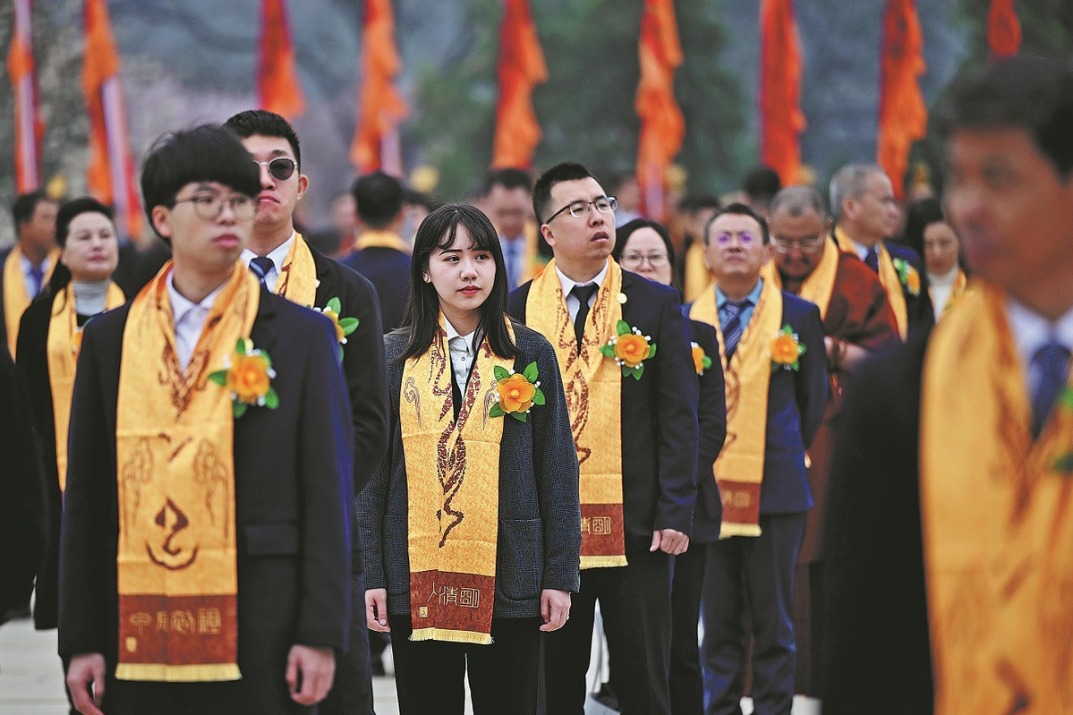Germany set to keep Merkel's China policy
By CHEN WEIHUA in Stuttgart, Germany | China Daily Global | Updated: 2021-09-15 14:29

Election front-runners have indicated they will continue pragmatic approach to relations
With the general election in Germany less than two weeks away, the leading candidates have indicated they will largely continue the China policy of Chancellor Angela Merkel, experts said.
The second debate among the main contenders on Sunday focused mostly on domestic issues, with Armin Laschet from Merkel's Christian Democratic Union attacking Social Democratic Party (SPD) candidate Olaf Scholz.
An Infratest dimap poll found that 41 percent of 1,500 viewers found Scholz the most convincing, compared with 27 percent for Laschet and 25 percent for the Green party candidate Annalena Baerbock.
Ding Chun, director of the Center for European Studies at Fudan University, said that for the winner of the Sept 26 election, the biggest foreign policy challenge will be how to deal with China-US relations, referring to tensions between the world's two largest economies.
"A hostile policy toward China would inflict huge damage on the export-dependent German economy. At the same time, it's unrealistic to expect Germany to side totally with China," he said before the debate.
Trade between China and Germany reached 213 billion euros ($251 billion) in 2020, making China the top trading partner of Germany for the fifth consecutive year, according to the German Federal Statistical Office.
Ding, who has met Scholz, described him as a "steady" leader. However, he warned that if a Scholz coalition government gave foreign affairs to the Greens it might have a negative impact on China-German relations, given the Greens' obsession with human rights issues.
Ding said he does not expect the next German government to totally side with the US, either, and adopt a hostile policy toward China.
As the current finance minister and a former mayor of Hamburg, a sister city of Shanghai, Scholz has extensive experience on China. A supporter of globalization, Scholz has warned against the decoupling advocated by some US politicians.
During a debate among the three candidates in June hosted by the Munich Security Conference, Scholz said he was "explicitly against any kind of decoupling fantasy" and leaving North America, Europe, and China in isolation and developing their own economic structures.
He also said he did not believe that any tough German policies, such as sanctions, would have an impact on China.
"We shouldn't build this notorious hubris as if a decision taken by the German Bundestag will lead to China changing everything from one day to the next," he said.
Laschet, the CDU party leader and governor of Germany's most populous state, North Rhine-Westphalia, said that Germany needs to "call a spade a spade" on human rights, but added that China is Germany's partner in many areas. "Climate change cannot be combated without China. We have to talk, cooperate, be partners," he said.
In an interview with the Financial Times in June, Laschet said he was unsure whether speaking "loudly and aggressively" about a country's human rights situation leads to improvements on the ground. "Often you can reach more in the area of human rights by addressing issues in private conversations with leaders of other countries than by talking about it in press conferences," he said.
In an address organized by the BDI industry association in June, Laschet said that while Germany's concerns must be talked about, "there is no need to turn our China policy on its head". "Starting a new Cold War with China is not the right approach," he added.
He Zhigao, a researcher at the Chinese Academy of Social Sciences' Institute of European Studies, said that neither the CDU nor SPD is a bad option for China.
"As leader, Scholz is more friendly to China. But as a party, the CDU is more friendly, more focused on economic issues and less obsessed with ideology," he said.
He believes that bilateral economic ties have played an important role in stabilizing the overall relationship, adding that economic relations have been stable despite political ups and downs.
"The German policy toward China in the post-Merkel era might tilt toward being values-based for a while, but will ultimately lean toward pragmatic economic cooperation," he said, a view many experts have used to describe Merkel's China policy during her 16 years in power.
"Merkel has laid some good foundations for the bilateral relationship. She didn't leave a mess," said Ding of Fudan University.























